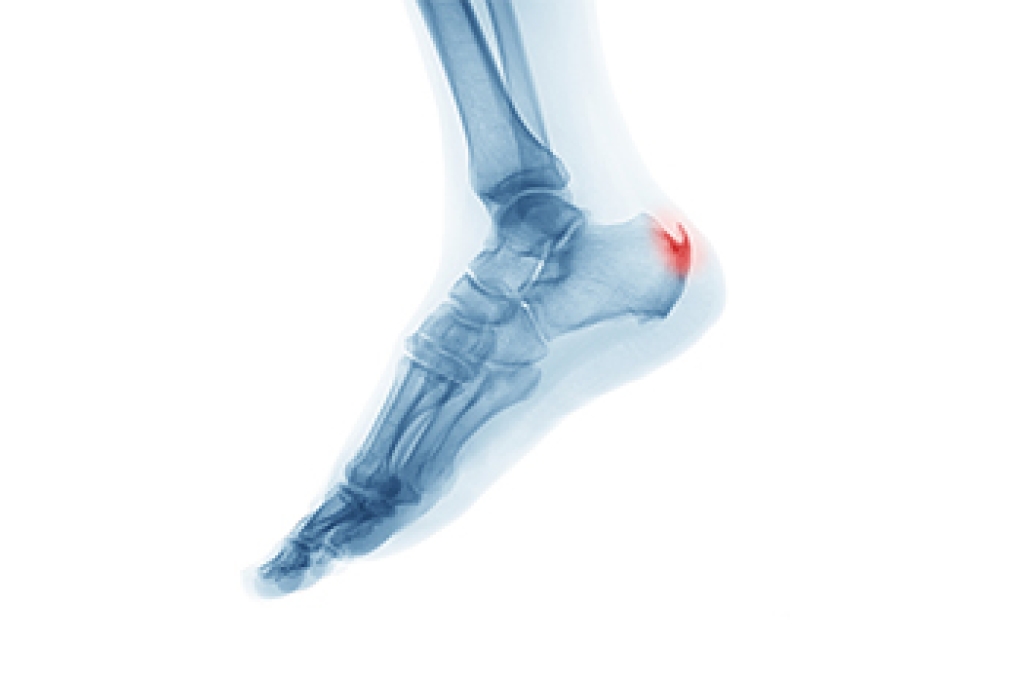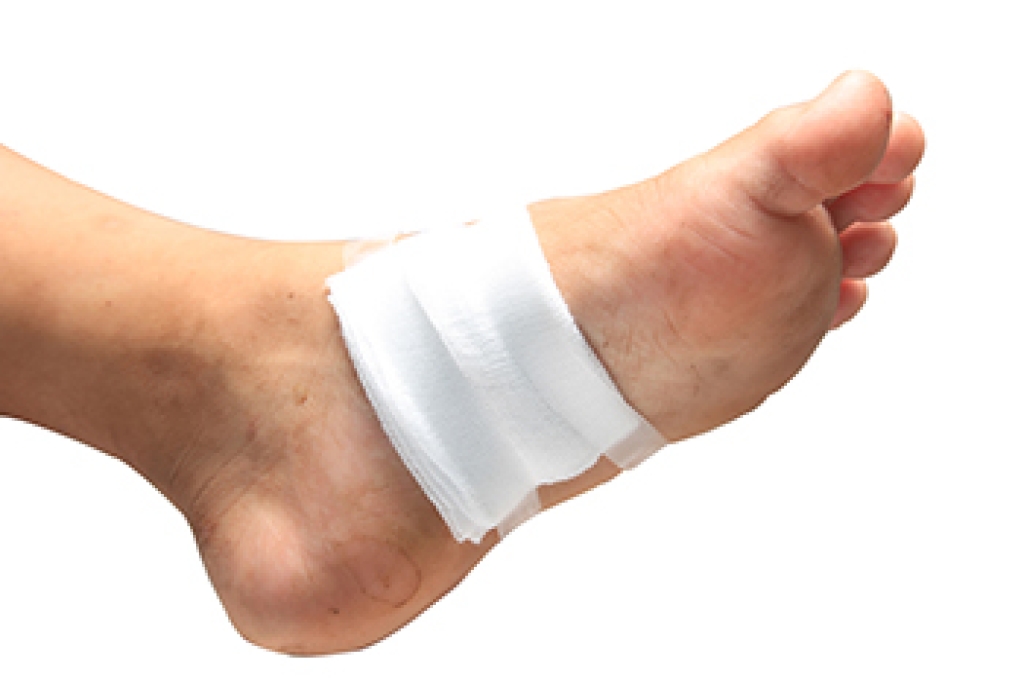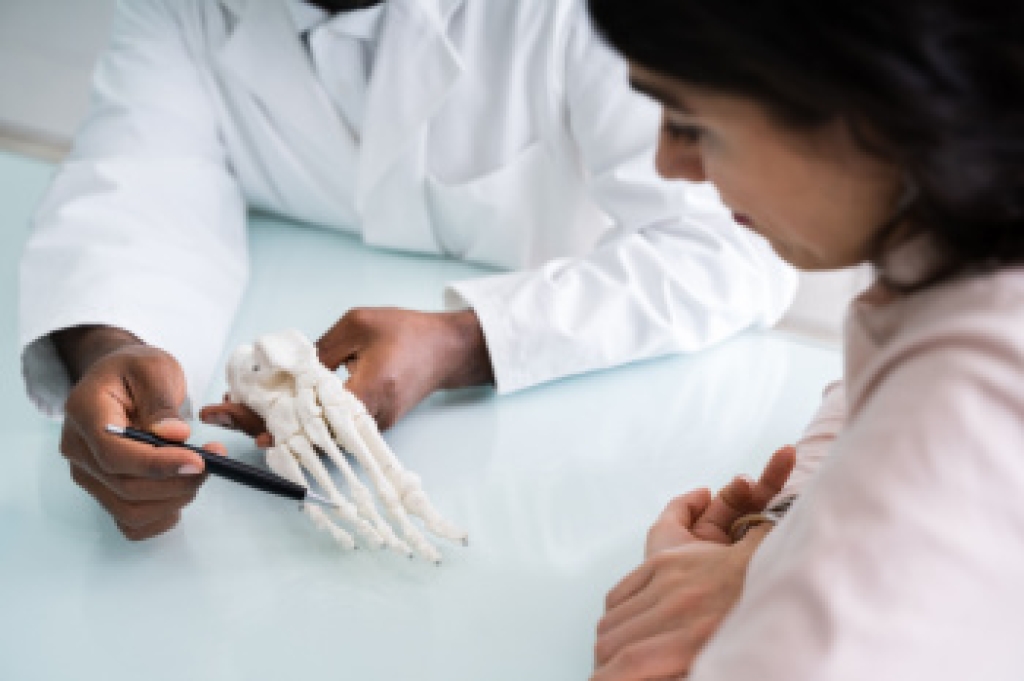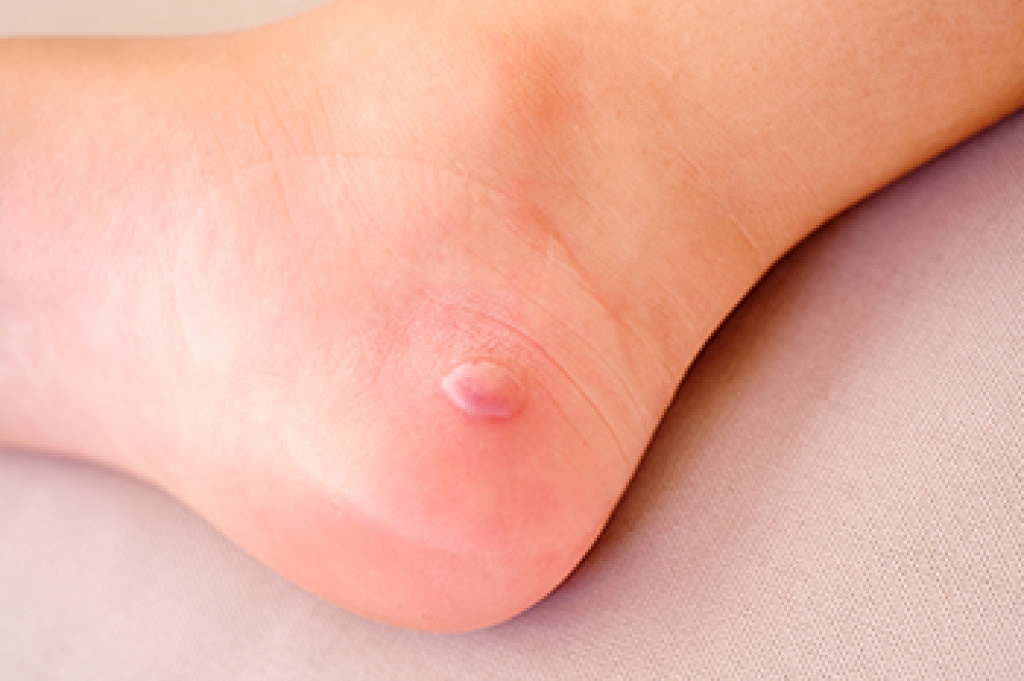
A heel spur is a small growth that develops underneath the heel bone. It can cause severe pain and discomfort and may happen from wearing shoes that do not fit correctly. Standing on hard or uneven surfaces for most of the day may also cause heel spurs to develop. If the lining of the heel bones becomes torn, or foot muscles and ligaments are strained, it may gradually lead to a heel spur. Heel spur syndrome may occur in patients who have plantar fasciitis, which is an inflammation of the plantar fascia. This band of tissue connects the heel to the toes, and a heel spur may also be present. If the heel spur is at the back of the heel, it may be indicative of a condition that is known as insertional Achilles tendonitis. This happens when the Achilles tendon attaches to the heel. Symptoms of this can include a reduced range of motion in the ankle, and it may be painful to climb stairs. If you have heel pain, it is strongly suggested that you are under the care of a podiatrist who can determine what caused it, and treat it accordingly.
Heel spurs can be incredibly painful and sometimes may make you unable to participate in physical activities. To get medical care for your heel spurs, contact one of our podiatrists from Granite State Podiatry Associates. Our doctors will do everything possible to treat your condition.
Heels Spurs
Heel spurs are formed by calcium deposits on the back of the foot where the heel is. This can also be caused by small fragments of bone breaking off one section of the foot, attaching onto the back of the foot. Heel spurs can also be bone growth on the back of the foot and may grow in the direction of the arch of the foot.
Older individuals usually suffer from heel spurs and pain sometimes intensifies with age. One of the main condition's spurs are related to is plantar fasciitis.
Pain
The pain associated with spurs is often because of weight placed on the feet. When someone is walking, their entire weight is concentrated on the feet. Bone spurs then have the tendency to affect other bones and tissues around the foot. As the pain continues, the feet will become tender and sensitive over time.
Treatments
There are many ways to treat heel spurs. If one is suffering from heel spurs in conjunction with pain, there are several methods for healing. Medication, surgery, and herbal care are some options.
If you have any questions, please feel free to contact our offices located in Manchester and Bedford, NH . We offer the newest diagnostic and treatment technologies for all your foot care needs.




